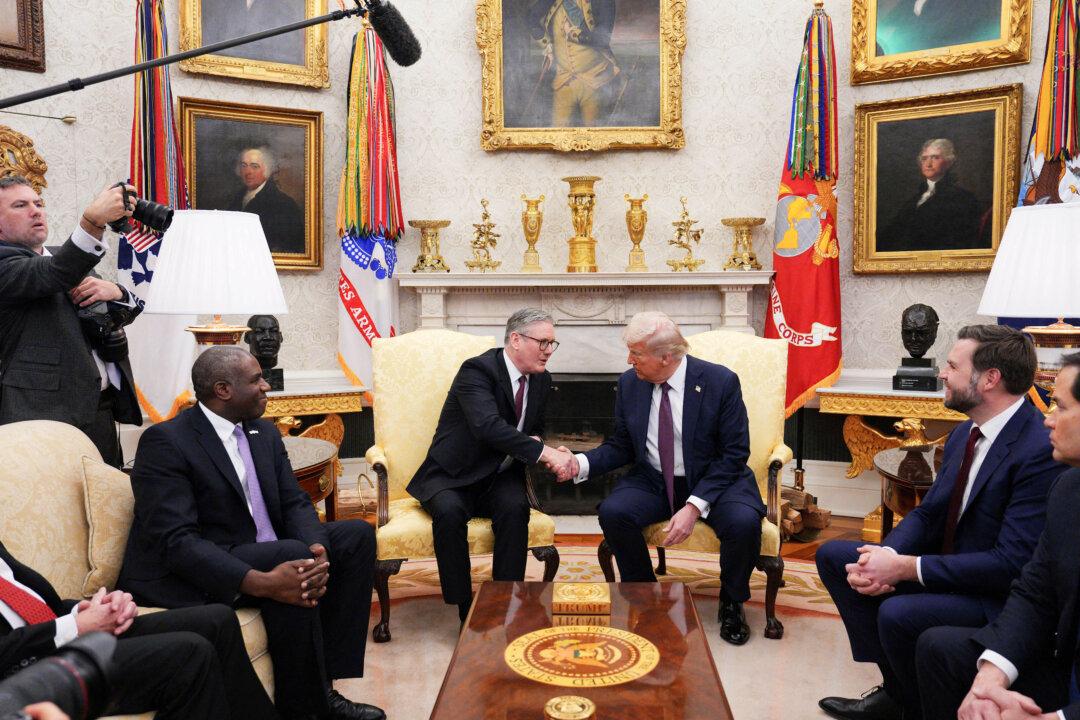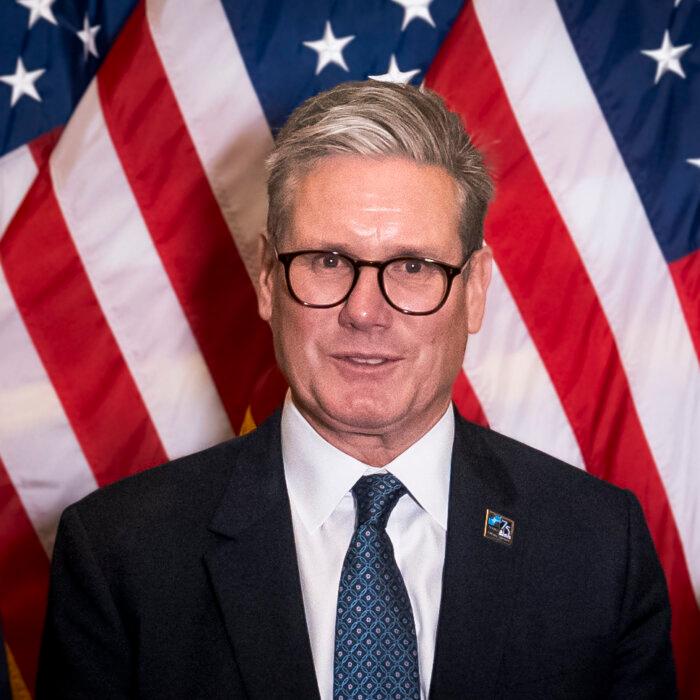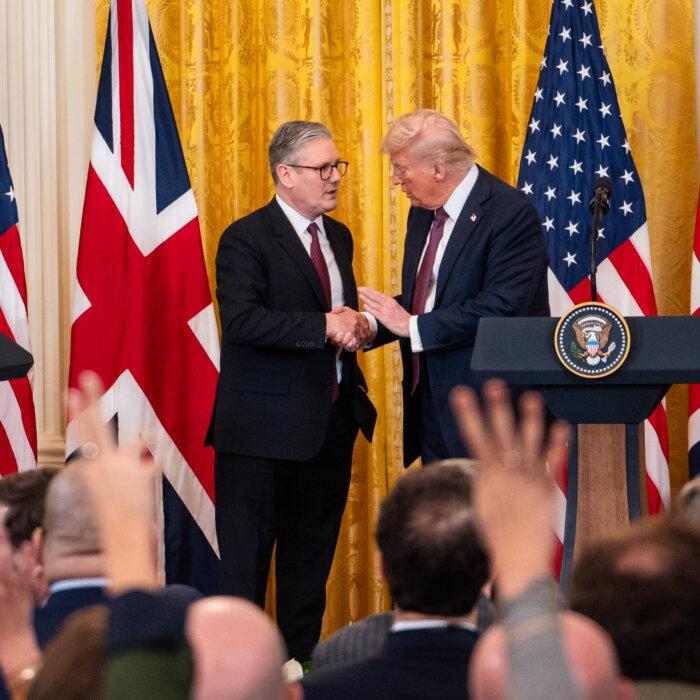The UK government is racing to reach a trade deal with Washington amid the expected new round of U.S. tariffs to hit global markets on April 2.
Prime Minister Sir Keir Starmer spoke with U.S. President Donald Trump on Sunday evening following the United States’ announcement of a 25 percent tariff on UK car imports.
Downing Street described the discussions as “productive” and said both leaders had agreed that talks would “continue at pace this week.”
“They agreed to stay in touch in the coming days,” a government spokesperson said.
The coming days are expected to be marked by a wider set of tariffs, tailored to each of America’s trading partners. These include a 20 percent levy on all Chinese imports, a 10 percent tariff on Canadian energy products, and duties on steel and aluminium, including from the UK.
Kristian Niemietz, editorial director at the Institute of Economic Affairs told The Epoch Times that given Trump’s “unpredictable” trade policies, even a formal deal would not provide the UK with “an absolute guarantee that there would be no trade barriers against British exporters.”
He noted, however, that even without “cast-iron guarantees,” a UK–U.S. trade deal would be beneficial for both sides and without downsides for either.
“It would lead to lower consumer prices and greater export business opportunities on both sides of the Atlantic in the short- to medium-run, and in the long-run, to a more efficient international division of labour,” said Niemietz.
Last week, Starmer said he was engaged in efforts to reduce the impact of U.S. tariffs on UK vehicle exports, warning against a confrontation.
The automotive sector will see car manufacturers such as Jaguar Land Rover, Bentley, Aston Martin, and Rolls-Royce most exposed to the already announced U.S. tariffs.
Industry leaders urged officials in both the UK and United states to “come together immediately and strike a deal that works for all.”
Starmer said that the automotive industry “doesn’t want a trade war,” but added that the UK prioritises its national interest, adding that “all options” remain on the table.
Markets and Economic Impacts
The U.S. tariff announcement on April 2 is expected to affect the so-called “Dirty 15” of countries with which the United States runs its largest trade deficits.This includes China, Mexico, Germany—and by extension the EU—Japan, South Korea, Taiwan, and Vietnam.
Economists expect the average U.S. tariffs on Chinese imports to rise to 60 percent, with other countries likely facing an additional 10 percent increase on current rates.
Chief Economist at Capital Economics Neil Shearing said that the two assumed tariff rates would push U.S. inflation to more than 3.5 percent year-on-year by the end of 2025.
The UK’s exposure will be determined by its trade and investment ties to the United States, said Swati Dhingra, a member of the Bank of England’s Monetary Policy Committee.
She pointed out that while the United States is the UK’s biggest single trading partner, it only accounts for about 10 percent of UK goods imports—mainly oil, which is unlikely to be affected by tariffs.
Dhingra warned that some UK sectors, like pharmaceuticals, could be vulnerable to supply issues, especially because the United States depends on Chinese ingredients for many medicines.
On the export side, she said UK industries that make high-value goods could be hit directly by new trade barriers. Ongoing uncertainty around trade policy, she added, tends to reduce investment and slow economic growth in both the UK and worldwide.
UK Trade Figures
The latest Office of National Statistics data show that trade between the UK and United States has remained relatively resilient.In January, UK exports of goods to the United States rose by £0.1 billion for the second consecutive month, while imports fell by the same amount.
Commenting on the figures, head of trade policy at the British Chambers of Commerce, William Bain, said UK exporters had started the year strongly despite global uncertainty.
“Despite geopolitical uncertainties around global trade, January was a bright start to the year by UK goods and services exporting companies in both EU and non-EU markets,” he said.
However, he warned that the remainder of 2025 could be “challenging” for exporters, particularly in light of potential retaliatory tariffs.
Bain called on the government to deliver targeted support for key sectors, including manufacturing, defence, and life sciences, as part of its upcoming industrial and trade strategies.
Navigating Between the US and EU
UK exports to non-EU countries rose by 5.7 percent in volume terms in January, outpacing the 1.3 percent increase in exports to the EU.On the import side, the UK saw a 2.4 percent decline in goods from the EU and a 1 percent drop in imports from non-EU countries.
Amid these shifting trade dynamics, Bain has called on ministers to pursue a new arrangement with the EU—which is still the UK’s largest trading partner—to reduce ongoing commercial friction.
However, strengthening ties with the EU could complicate Britain’s efforts to negotiate a comprehensive trade deal with the United States, owing to diverging regulatory frameworks.
Public sentiment remains divided.







